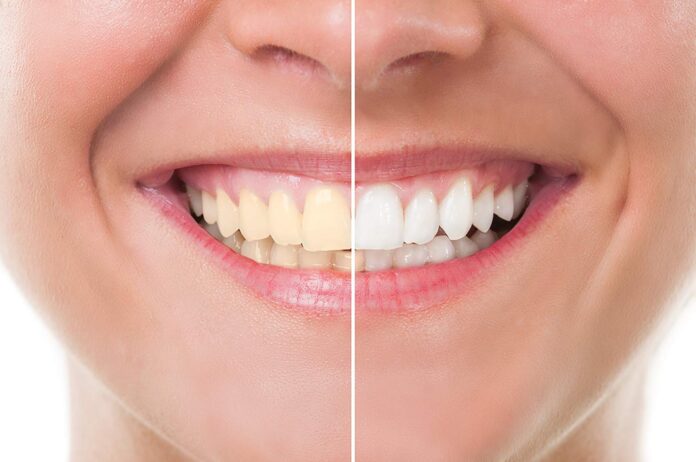Did you know that among adults aged 20 and older, about 90% have had at least one cavity? And that 1 in 4 adults aged 20 to 64 have at least one cavity right now? These statistics come from the Centers for Disease Control and Prevention (CDC).
Few people like going to the dentist, especially when they need a cavity filled or a root canal done. Fortunately, there are some easy ways to avoid cavities and keep your teeth clean. Here are a few:
- Brush your teeth twice a day
Good dental hygiene starts with brushing your teeth. Experts recommend doing it twice daily—once in the morning and once at night.
But it’s not enough to brush for only a few seconds as you may have done as a kid. To get the full benefits of brushing, you need to brush for two minutes along all sides of each tooth (front, back, and sides).
Move your toothbrush in gentle, circular motions and not too hard. If you’re not careful, brushing too hard can damage your teeth and gums.
It’s also important not to neglect your tongue. Not brushing your tongue can lead to bad mouth odor and other health issues.
Finally, be sure to replace your toothbrush at least every three months. A dirty or frayed toothbrush won’t do you nearly as much good. The American Dental Association (ADA) recommends getting one with soft bristles.
- Use fluoride toothpaste
Fluoride is a natural mineral that comes from rocks and can help protect teeth against decay by fighting off germs. It essentially acts as a protective barrier.
Though most toothpastes contain fluoride, not all do. So it’s important to double check the ingredients of a toothpaste before buying it.
- Don’t forget to floss
Most people know that they should floss, and yet only 4 in 10 Americans floss their teeth once per day and 20% of Americans don’t floss their teeth at all.
One reason that many people neglect this important part of dental hygiene is that they don’t fully understand the purpose behind it. The purpose of flossing isn’t just to remove excess pieces of food that get stuck in your teeth. It also helps prevent plaque from building up on your teeth in the first place.
If you don’t like holding the floss string with both hands and flinging your saliva everywhere as you floss, try single ready-to-use dental flossers that let you floss with one hand.
Whatever you do, remember to be gentle so you don’t cause any damage.
- Use mouthwash
Another way to supplement your dental hygiene routine is to use mouthwash. Though it’s no substitute for brushing and flossing, mouthwash can reduce the amount of acid in your mouth, re-mineralize your teeth, and help clean hard-to-brush areas.
Some mouthwashes contain alcohol, while others don’t. Non-alcoholic mouthwash is generally considered to be safer, but both can be effective.
- Limit your sugar intake
Sugar is bad for your teeth in two ways. First, it turns into acid that eats away at your teeth enamel. Second, it attracts tiny bacteria that can cause gingivitis and gum diseases. And that’s just the impact of sugar on your mouth. It’s also bad for your overall health for other reasons.
Needless to say, you should limit your sugar intake. Experts suggest keeping it below 10% of your daily calories.
On top of that, you should monitor how many starches and carbohydrates you eat, which also break down into sugars in your mouth. The same goes for acidic fruits, teas, and coffee. All can be damaging if taken to excess.
Instead, try eating more things that don’t contain added sugar. Some good examples include vegetables and fiber-rich fruit.
- Drink more water
On a similar note, drink more water. Water is much better on your teeth than juices, sodas, and other sugary drinks, which are the number one source of added sugars.
Look for water that contains fluoride as well. That way, you’ll not only avoid damaging sugars but gain the benefits of fluoride’s protective properties. This combined effect will lower your risk of getting a cavity.
- Don’t smoke
If you smoke, quit. The simple truth is that smoking is terrible for your health including your teeth and gums. In fact, in severe cases, it can make your teeth fall out!
Smoking is a major risk factor for gum disease and it weakens your mouth tissue’s ability to heal itself. So avoid smoking at all costs.
- See your dentists at least twice a year
Finally, it’s important to get a dental checkup at least once a year. This way, your dentist can check for signs of cavities, gum disease, mouth cancer, and other health issues. And the earlier such things are detected, the easier they are to treat.
While you’re there, you can also get your teeth professionally cleaned. In most cases, dental insurance will cover these costs. So go to the dentist. Better to be safe than sorry.
Adding it all up
At the end of the day, keeping your teeth clean comes down to maintaining good habits. The sooner you implement good dental hygiene habits like the ones discussed, the better off your teeth will be in the long run. So start taking care of your teeth today.


